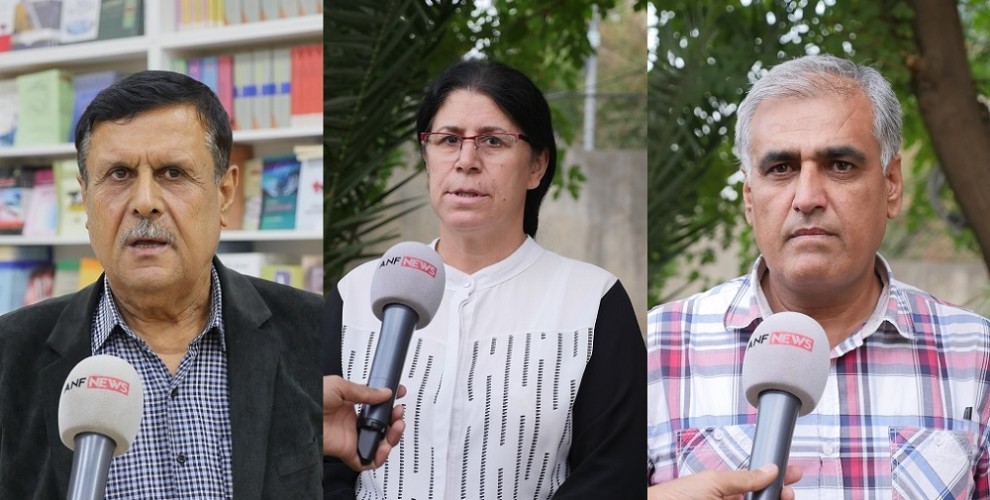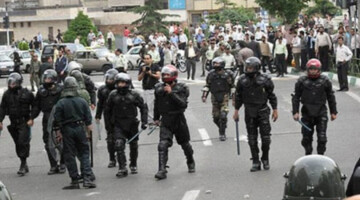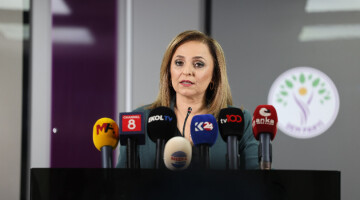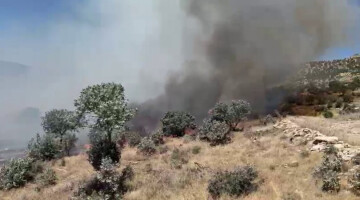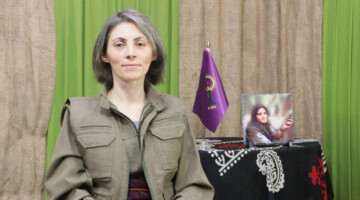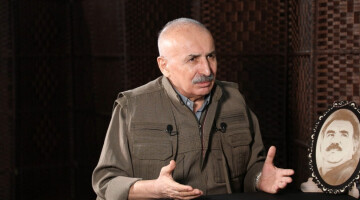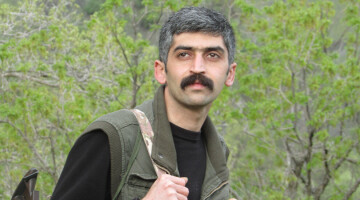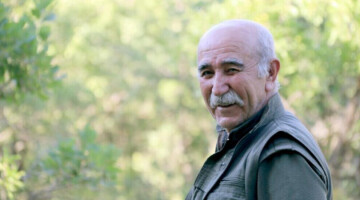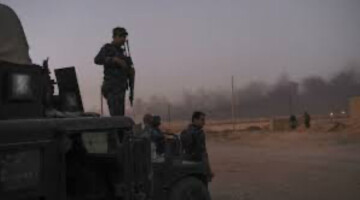The Dêrin peshmergas protest the discussions centered around the peshmerga after the peshmergas were ordered to withdraw from Kirkuk and other disputed territories when the Iraqi army and the Hashd al-Shaabi attacked.
“THEY ARE THE CAUSE OF THE RUPTURE”
60 years old Dêrin peshmerga Ebdurrahman Xelife said:
“The Peshmerga has been a force that fought partisan battles. If one wants to make an army out of the Peshmerga, one needs to create a general command first. Without a general command, if you attempt to make an army out of the peshmerga you would also destroy the partisan fighting force. There should be no politics in the military and fighting force. Politics will corrupt the fighter and the army. All peshmergas, all partisans can have a political view, and they should, but they shouldn’t fight for that view, they should fight for the country and the land.
We have the incidents of October 16 in Germiyan, Tuz Khûrmatû and Kirkuk. There were the 70th Regiment forces and the 80th Regiment forces. The 70th Regiment is allied with the PUK and the 80th Regiment with KDP.
There has been a rupture and they blame each other for it. But if there had been a general command that both these forces were under, then that command would have been responsible for the rupture.
The peshmergas receive their orders from individuals now. The cause of the rupture is having separate individuals giving orders. It is not a rupture of the peshmerga, it is one of political fragmentation reflecting on the peshmerga forces. For that, the rupture is with the parties and politicians, not the peshmerga.”
“ONE DOES IT FOR PATRIOTISM, NOT FOR MONEY”
57-year-old former Dêrin peshmerga who served in the 1980’s, Sirvan Seid from Kifri said, “To be a peshmerga one does it for patriotism, for the nation, not for money.”
Seid said they served as peshmergas in the 1980’s when national and patriotic sentiment was high and continued:
“We were fighting, we were able to fight, because we became peshmergas with these beautiful and noble sentiments. Back then we didn’t think of money, we didn’t care for it. We cared for the country and the land. Now they replaced the beautiful and noble sentiments with money. Now it’s for money. When money got involved, patriotism and the nation disappeared. They will do it if they get paid, and won’t if they don’t. Our former commanders were just like us. They didn’t care about money, or companies, or anything else. But the current commanders are not like that. They all have several businesses, investments. And they use the peshmerga under them to defend their companies, assets and money, rather than defending the land. The parties are also like this, and the individuals as well.”
Seid stressed that what happened in Kirkuk was treason against the peshmerga and the people, and added: “The commanders withdrew, and ordered the peshmergas to withdraw as well, thus sacrificing the peshmerga for their own gain.”
“THEY FRAGMENTED THE PESHMERGA LIKE THEY FRAGMENTED EVERYTHING”
54 years old female Dêrin peshmerga Ronak Mecid said this severe outcome happened because the peshmergas in Southern Kurdistan were transformed from a national force to a force allied to individuals and parties.Mecid said:
“There were two Asayish’s, two police forces, two special operations forces in Kirkuk city centre. This shows the extent of the fragmentation that has been created.
The fragmentation is not limited to just that. For example, those with responsibility in all the parties have a separate brigade that answers to them personally. That creates conflict and clashing between peshmergas and political parties, and even within the parties themselves.
When we look at the peshmergas of the ‘80s, we see that all the parties had their own peshmergas as well. But back then, the forces under these parties fought as forces for the country, the land and freedom, not for the interests of these parties.
During the Anfals period, all peshmergas were together and they fought together.
The current rupture is not a rupture of the peshmerga but one of the political parties and politicians.”

